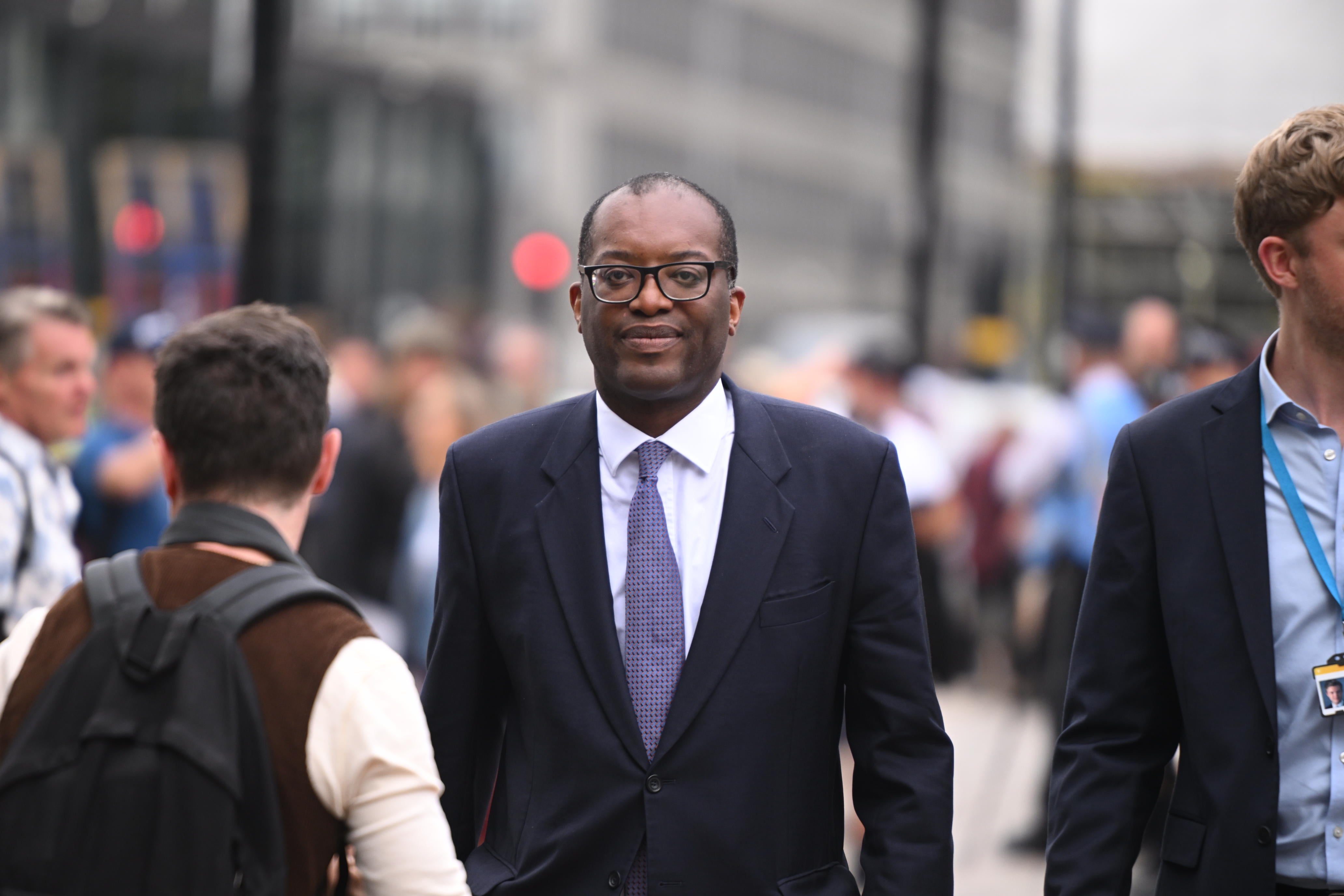A strong dollar and a weak pound spells trouble for Kwasi Kwarteng
This combination will make life very difficult for the new chancellor on Friday – and, of course, more importantly, for all of us this winter, writes Hamish McRae


A sinking pound or a soaring dollar? The view of the world from Washington DC is always different from that from London, but never more so than this week. The president is in the UK for the state funeral of Queen Elizabeth II, as are most of the other global leaders, but from here the prime question this week is: what will the Federal Reserve do to interest rates?
Britain is important in cultural terms, and the monarchy is a key element of the country’s “soft power”, the expression coined by the US academic Joseph Nye to show how image and culture extended the US’s global reach above and beyond its military might. That matters. But from an economic or financial perspective, the UK is a bit of a backwater.
You can see that in the lack of any response here in the US to the fact that last week the pound plunged to its lowest against the dollar since “Black Wednesday” 30 years ago, when sterling was kicked out of the European Exchange Rate Mechanism.
Given that it was this event that destroyed the reputation of John Major’s government and paved the way for Tony Blair’s New Labour, what happened last week carries an ominous warning for Liz Truss. But in the US, no one seems to care. What matters is how much the Federal Reserve will increase interest rates this coming Wednesday. Will it be 0.75 per cent, the mainstream expectation, or maybe even a full 1 per cent? The markets now expect the peak in its rate to be 4 per cent and already mortgage rates have hit 6 per cent.
The prospect of yet higher interest rates is making the dollar the most attractive currency in the world – or, more accurately, the least unattractive, since the US looks like facing a recession next year and that is troubling the markets. But the country is not going to face energy shortages this winter, as will much of Europe, and it does not have the long-term productivity problems of the UK.
Besides, while both the Bank of England and the European Central Bank seem set to increase interest rates this coming week, the Fed looks like pushing them up by more.
So it looks very much as though the dollar will keep rising through the winter and a weak pound adds to the problems that the UK’s new chancellor, Kwasi Kwarteng, faces with his emergency Budget this Friday. I don’t think this government quite realises how hostile the economic environment is towards it.
Insofar as American money managers pay attention to the UK, and that is not much, they are sceptical that the government can pull things around. It can borrow a bit more, which would in normal circumstances support the economy, and there is a strong case for doing this in the light of the surge in energy prices. But if interest rates have to rise even faster and more steeply to protect the pound, then that offsets the fiscal boost.
Think of it this way. More money spent by a family to pay the higher energy bills is money not available to spend on buying other goods and services. So the energy package helps there. But if the net result is more expensive mortgages, then money spent on paying interest on the mortgage puts the family back to square one.
To keep up to speed with all the latest opinions and comment, sign up to our free weekly Voices Dispatches newsletter by clicking here
This may be too gloomy. But I have been impressed by the way the weight of the commentary in the US leans towards there being a recession next year. Last week the World Bank here in Washington warned of a global recession because central banks everywhere were increasing rates at the same time. Last week was the worst since June for US shares as measured by both the two most important indexes, the S&P 500 and the Nasdaq. The economists are divided as always between optimists and pessimists, but if the stock markets plunge that shows which side is winning. The bears are running the show now.
And there is the paradox. The dollar is soaring and share prices are plunging – both driven by expectations of much higher interest rates. Remember the adage “when America sneezes the world catches a cold”?
This prospect of higher interest rates is already leading to snuffles here in the US. When, after the funeral, the world leaders depart from London, the UK will be left facing the prospect of a nasty cold.
So – a strong dollar or a weak pound? The answer is that it is both, and it is this combination that will make life very difficult for the new chancellor on Friday – and, of course, more importantly, for all of us this winter.
Join our commenting forum
Join thought-provoking conversations, follow other Independent readers and see their replies
Comments
Bookmark popover
Removed from bookmarks